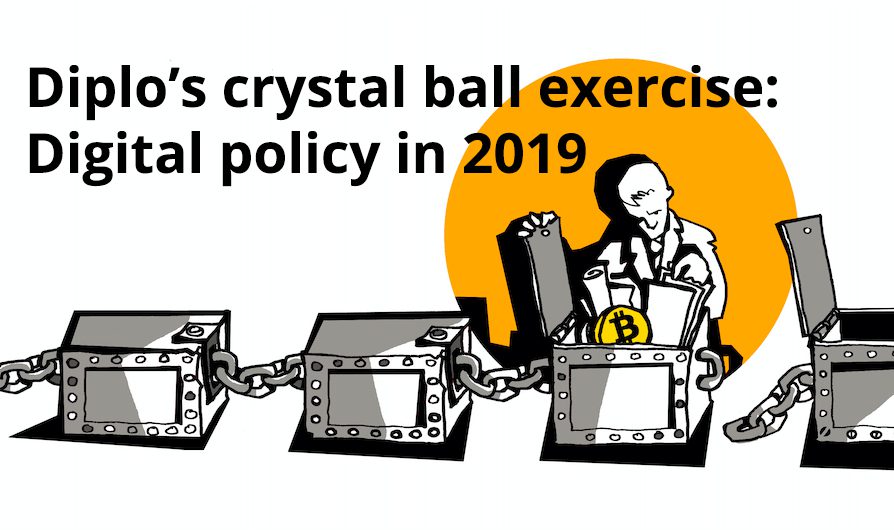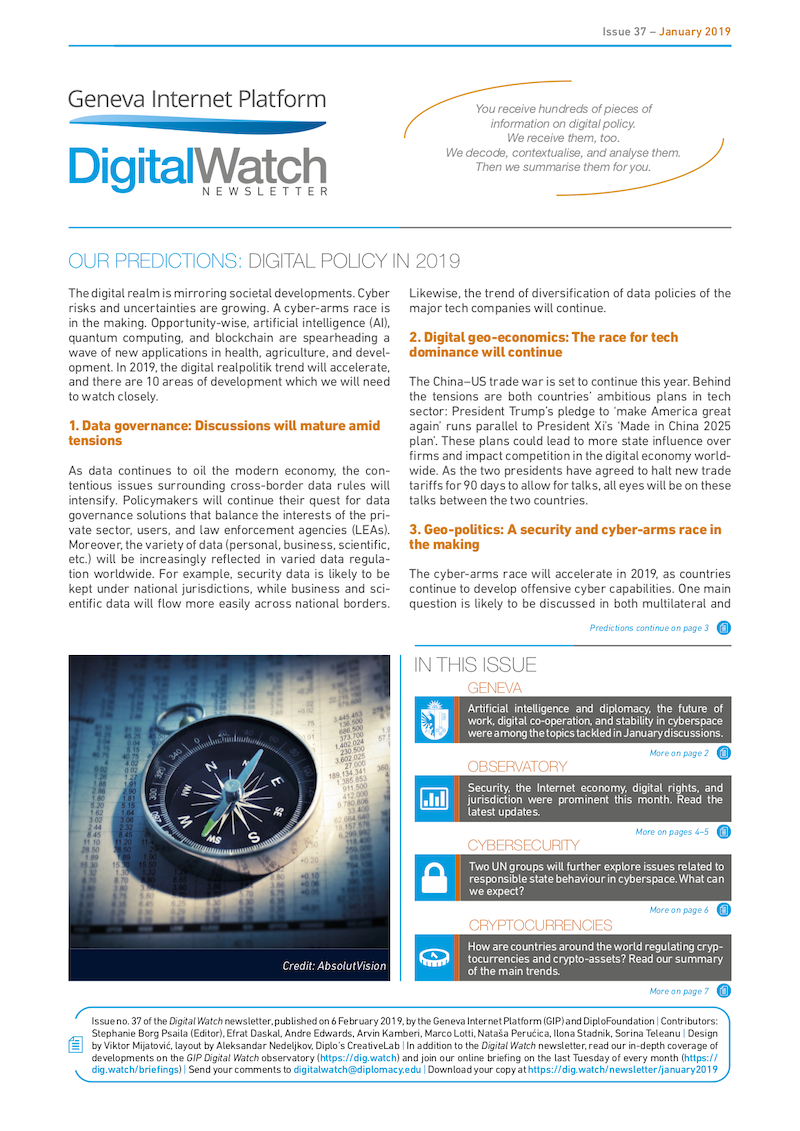
DiploNews – Issue 365 – 15 February 2019
Upcoming study opportunities
New online course: Artificial Intelligence: Technology, Governance, and Policy Frameworks
Artificial intelligence has developed significantly in recent years, and is increasingly part of everyday life. Interactive voice assistants in our mobile phones, targeted online advertisement, autonomous cars, and autonomous weapons are some examples of the varied applications of AI in our societies. This course aims to provide in-depth knowledge that will enable participants to assess critically the consequences of AI and understand the opportunities and challenges it creates in the fields of policy and diplomacy. It provides an interdisciplinary coverage of the topic, encompassing technical, political, legal, and ethical issues related to AI.
Join our newest online course, starting 6 May 2019. Read more and register now, to reserve your place.
This course can be taken as part of the Advanced Diploma in Internet Governance.
May 2019 online diplomacy courses
Starting on 6 May 2019, we offer courses on diplomacy topics, both classic and contemporary:
Apply by 4 March 2019 for University of Malta accredited courses and by 1 April for Diplo certificate courses. For further information or to apply, click on the titles of the courses listed, or visit our courses webpage. Register now to reserve your place.
Malta scholarships
Thanks to support from the government of Malta, partial scholarships are available for applicants from developing countries to attend upcoming Diplo online courses. These scholarships cover 30%–60% of course fees and can be applied to most online courses in 2019. Browse our course catalogue and contact us at admissions@diplomacy.edu for further information. You can also sign up for our courses mailing list to be informed about upcoming courses.
Diplo’s crystal ball exercise: Digital policy in 2019
The digital realm is mirroring societal developments. Cyber risks and uncertainties are growing. A cyber-arms race is in the making. Opportunity-wise, artificial intelligence (AI), quantum computing, and blockchain are spearheading a wave of new applications in health, agriculture, and development. In 2019, the digital realpolitik trend will accelerate, and there are 10 areas of development which we will need to watch closely.
This crystal ball exercise follows the tradition initiated and delivered every year by DiploFoundation’s founding director Dr Jovan Kurbalija. The 2019 predictions have been prepared by Diplo’s team of digital policy researchers.
January issue of the Geneva Digital Watch newsletter
Published on 6 Febuary 2019, Issue no. 37 of the Geneva Digital Watch newsletter provides digital policy updates which took place in January. Highlights include:
- An overview of the top ten digital policy predictions for 2019
- The Internet Governance Barometer for January, which shows that cybersecurity, e-commerce and the Internet economy, digital rights, jurisdiction and legal issues, and new technologies (IoT, AI, etc.) were prominent issues in January
- A review of the main digital-policy-related events held in International Geneva during the past month
- An analysis of the Open-Ended Working Group (OEWG) and the new Group of Governmental Experts (GGE) created by UN General Assembly to further explore issues related to responsible state behaviour in cyberspace
- The main findings of a mapping of cryptocurrency and crypto-assets regulations
- A review of main digital policy events in 2019
Download the January issue of the Geneva Digital Watch newsletter.
Humanitarian Networks and Partnerships Week (HNPW)
The GIP Digital Watch Observatory‘s team of rapporeteurs reported from the digital policy related sessions at the Humanitarian Networks and Partnerships Week (HNPW) which took place on 4-8 February in Geneva, Switzerland. Read their reports on the GIP Digital Watch Observatory‘s site.
[WebDebate] Arctic diplomacy: Approaches and lessons summary
In our February [WebDebate] Arctic diplomacy: Approaches and lessons, we looked at Arctic diplomacy. We were joined by Dr Danita Catherine Burke (Marie Skłodowska-Curie Individual Fellow at the Center for War Studies at the University of Southern Denmark), Prof. Paul Berkman (Professor of Practice in Science Diplomacy, Fletcher School, Tufts University), and Dr André Saramago (Invited Assistant Professor of International Relations at Coimbra University and University Beira Interior, Researcher with the Orient Institute). The WebDebate was moderated by Dr Katharina Höne. Read the full summary by Andrijana Gavrilovic.





